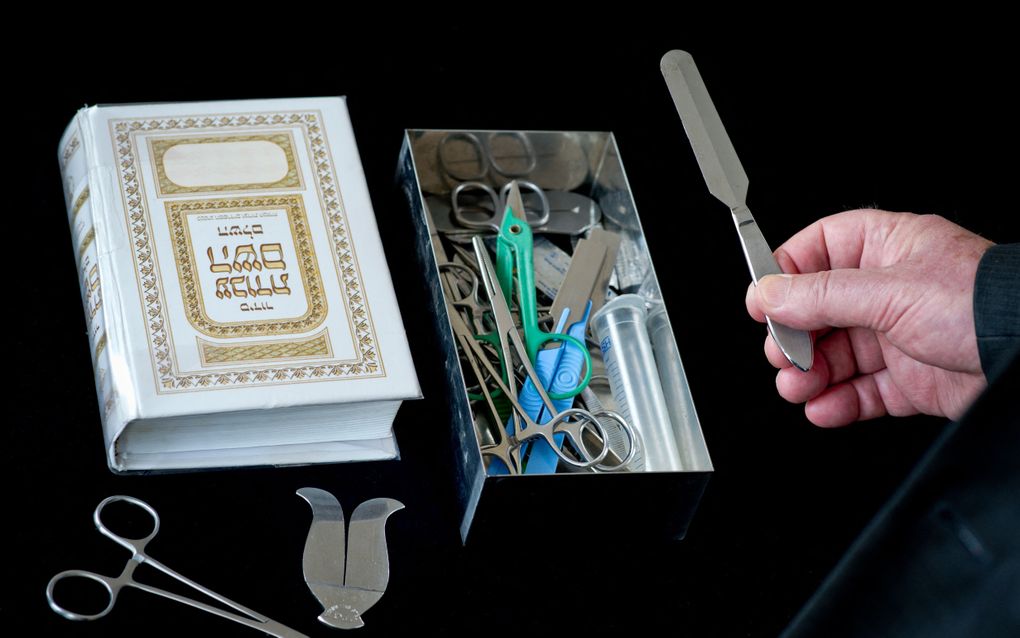Danish parliament rejects ban on boys’ circumcision
With about two-thirds majority, the Danish parliament rejected a proposal to make boys’ circumcision more difficult. On Tuesday, the final vote was the outcome of a long process that started with a citizens’ initiative in 2018.

All the centre parties in the Danish Folketing voted against the age limit of 18 years for circumcision. Only the marginal members on both the left and the right supported the de facto ban, reported the Kristeligt Dagblad.
The Danish Prime Minister Mette Frederiksen had said before that she was not in favour of a ban on circumcision. That would make the life of young Jewish families much more difficult or even impossible. And that would not fit with the promise that the Danish government had made after the Second World War to guarantee the Jews' safety in the future.
With 6,000-7,000 members, the Jewish community in Denmark is very small. Only several dozen circumcisions are done each year for those people. The official mohel of the religious Jews does about 10 circumcisions a year. The Jews circumcise on the eighth day of the boy.
Most of the 1,000-2,000 circumcisions in the country are done for the 250,000 strong Muslims community. But Muslims don’t do the ritual on a fixed day, but usually before puberty.
The independent MP Inger Støjberg tried to rescue both the Jewish well-being and the ban on circumcision. She put forward an amendment to forbid the ritual only after the eighth day of the boy. “We will always protest Danish Jews and their opportunity to practice their religion”, she said according to Kristeligt Dagblad. “It is a commitment that I will not fail.”
Circumcision in the Muslim community is a problem on its own, Støjberg said, because they don’t do it in a clinic. Apart from that, it’s better to circumcise early than later, based on a WHO report from 2010.
Principally spoken, Støjberg is against circumcision since it is a life-changing intervention for a healthy boy. That feeling is powerful in Denmark, also with other members of parliament. The movement behind the citizens’ initiative Intact Denmark works with the slogan: “You don’t cut healthy children.” Intact Denmark is a Danish branch of an international movement against circumcision. Støjberg’s amendment was rejected.
Another independent member, Simon Emil Ammitzbøll-Bille, brought forward that everybody’s body should be inviolable. “That should be the starting point for the discussion, regardless of religion. I think it is appropriate to discuss this, as it is precisely about children’s rights”, he said. He expected that sooner or later, Denmark would forbid the boys’ circumcision.
Punish
The president over the Jewish Community in Denmark, Henri Goldstein, was delighted after the vote, he wrote in his newsletter. "It has taken more than three years to debate this citizens' proposal in Parliament, which intended to punish Jewish parents with up to six years in prison. It has been an unreasonably long process and an extremely unpleasant and one-sided debate, in which prejudices, misunderstandings and outright lies about circumcision have had free rein."
Although Goldstein is happy with the result of the vote, "the struggle is far from over", he emphasizes. "Our opponents are not going to stop now. We must deal with the false narrative of circumcision as 'mutilation'", Godstein wrote to the members of his community.
It's enough now
After the citizens’ initiative, Goldstein said that „it is enough now”, writing in an op-ed in the Christian daily Kristeligt Dagblad. He spoke about the „worst threat since World War II”. He thought male circumcision is „absolutely essential” for being Jewish.
If the Folketing had decided on a de facto ban, Denmark would have been the first country in the world to do so. In 2018 Iceland was very far in forbidding, but after pressure from the USA and Israel, the country decided to put the legislation on hold. Germany made a special law for circumcision in 2012 after a judge decided that it was illegal.